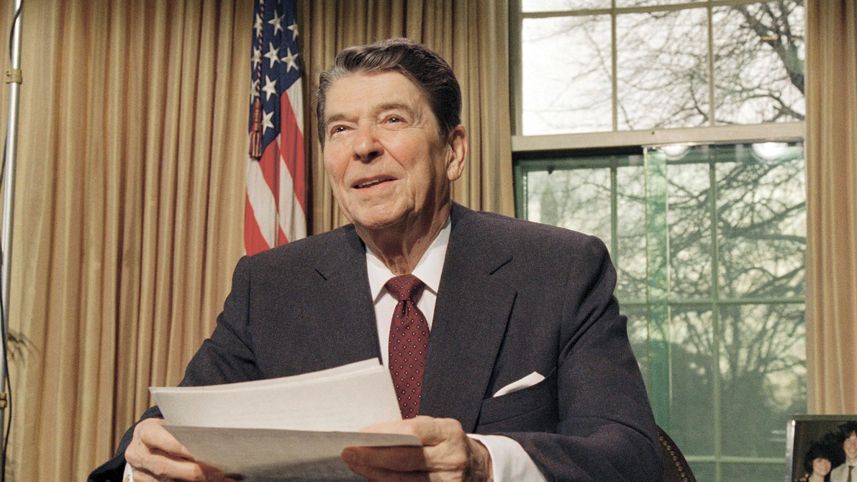Not only did Ronald Reagan won the 1981 U.S. presidential race, but he also managed to establish an unrivalled reputation for himself as a strong and firm leader who had warned off Iran, and who freed 52 of the U.S. citizens detained in Tehran within the early few days of his presidency.
The Iran hostage crisis, settled by the U.S. 40th president, was when 52 American diplomats and citizens were held hostage for 444 days, after they were taken in during the U.S. Jimmy Carter administration. The incident took place when a group of Iranian students belonging to the Muslim Student Followers of the Imam’s Line stormed the U.S. Embassy in Tehran.
Could it be that history might repeat itself with Republican Candidate Donald J. Trump becoming the U.S. 2016 president elect? Will his anti-Iran policy be thoroughly implemented against a cleric-led regime who had enjoyed eight years of U.S. stalemate?
Before Barack Obama’s election in 2009, Iran was subject to U.S. containment policies. As Obama’s term nears to an end, Iran has come almost completely let off the hook—toppling regional balance and pushing the theocracy a step closer to achieving its aspirations for political and military hegemony.
Iran’s Foreign Minister Javad Zarif’s first comments on Trump’s take of the White House were warning-shaped addresses that the president elect must sustain the Iran nuclear deal, saying that other options are available if the deal is overturned.
Iran’s fears of a Trump administration have been loudly voiced so far, with here and there media statements and even Friday preachers, namely top cleric Ahmad Khatami, sounding a clear forewarning of the future leader of the global superpower trying to fiddle about Iranian affairs.
Trump had voiced his opposition for the Iran deal, blasted it as “rotten,” “imbecilic,” and a “bad deal.” More so, Trump said that the deal will lead to ‘nuclear holocaust.’
What remains up for questioning is whether Trump’s rhetoric is just campaign talk or that it is true conviction that will shape up his future policies. But that is still not answered. Nonetheless, Trump’s Republican Party had long protested and criticized the Iran deal with congress staging many attempts to fail it.
Iran’s Zarif had made a point on the nuclear deal being an internationally recognized one and not a bilateral accord. The deal was signed in Lausanne, Switzerland with five other major powers, other than the U.S.
On the other hand, an argument can be made through Iran not respecting the full parameters and conditions of the deal, which has been criticized and highlighted by Western powers, and hence the process of its implementation can be justifiably stalled.
Truth be told is that Iran had received a uniquely unrestricted treatment from the Obama administration– however Iran returned the favor with brutal regional conduct and uncooperative behavior.
Iranian leadership also undermined Obama’s generosity when U.S. Navy seals were arrested and mistreated on camera.
More so, Iran series of transgressions against U.S. citizens continued as arbitrary apprehensions were staged against dual-national Iranian American citizens.
What further questions the level of commitment of the Iran regime to the nuclear deal is that Iran’s elite cleric and ruling military movements in Tehran had run a fierce campaign against the Hassan Rouhani administration for making the deal with the West. Rouhani’s administration had been repeatedly accused by fundamentalists. In conclusion, Iran’s radicals want to trade freely, yet have second thought on cooperating with the international community.
Tehran has amped up its ties with Russia– both countries have become strong allies that fight side to side in conflict zones. Russia had been graced with military enablement in Iran so that it can run its Syria activities. Mutual benefit also includes great economic and military deals between the two.
Obama’s forgiveness was exploited as Iran tightened and escalated its foreign policy against U.S.-ally countries such as Arab Gulf States and Turkey, more so waging wars in Syria and Yemen.
Will the U.S. president elect simply concede to the chaos a deal-empowered Iran has been tearing up the region with, or will there be a Reagan-inspired start which stands up to the Tehran theocracy?
